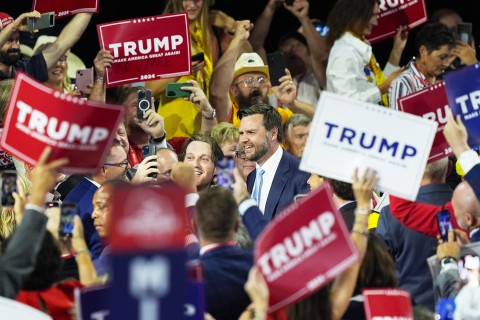Are Democrats more likely to be anti-Mormon?
"Between now and Election Day," writes Peter Beinart, "anti-Mormonism is going to be the Democratic Party’s constant temptation for one simple reason: there are votes in it." I'm not sure I'd call it the party's "constant temptation," but Beinart is certainly right that bigotry against Mormons remains a politically potent force in the U.S., and that the Democrats aren't above exploiting it.
But is Beinart right that the Democrats have a bigger religious bigotry problem here than the Republicans do? The Gallup data he highlights is startling: more Democrats than Republicans say they wouldn't vote for a Mormon. Of course, it's hard to imagine that these results aren't at least partly a reflection of our political moment, at which a) partisanship continues unabated and b) one of the two parties is about to nominate a prominent Mormon for president. (When the poll was taken last summer, Romney already wore the mantle of presumptive nominee.) Most Democrats aren't willing to vote for Mitt Romney, and naturally that's who they think of when a pollster asks them about Mormons.
Meanwhile, a whole lot of Republicans have for many months been resigning themselves to the possibility of voting unenthusiastically for Romney, and for some of them his religion is a prime hangup. For these folks, the pollster's question is anything but hypothetical. It's been keeping them up at night.
This bit isn't too convincing, either:
One reason Democrats may be more anti-Mormon than Republicans is that Democrats, on average, are more secular. Devout Protestants, Catholics, and Jews may be more tolerant of Mormonism because they understand from firsthand experience the comfort and strength that religious commitment brings. Many secular Democrats, by contrast, may start with the assumption that religious orthodoxy produces irrationality and intolerance.
Sure, some secular Democrats are down on religion generally, which no doubt accounts for some of the poll's findings. But I'm skeptical of any explanation that posits that conservative religious people are in general moved significantly by genuine interfaith empathy and solidarity. The interfaith coalition of conservatives in this country was built by the more politically pragmatic among them, and it was no simple task. It wasn't that conservative Protestants, Catholics and Jews "got" each other as a basic level and thus were naturally, mutually tolerant. They had political goals, and they needed to work together to achieve them.
This year, one party's political goals require voting for a Mormon, and the other party's goals require voting against one. And yes, we all need to take the Democrats to task whenever they bait the religious bigots. But I'm not at all convinced we'd be looking at the same poll numbers if, when the poll was taken last summer, Mitt Romney hadn't already been a leading candidate for president--or if Harry Reid had. As usual in our political culture, party tells most of the story.
Elsewhere, Romney's faith is apparently good enough for Joel Osteen's stamp of approval. So there's that.






